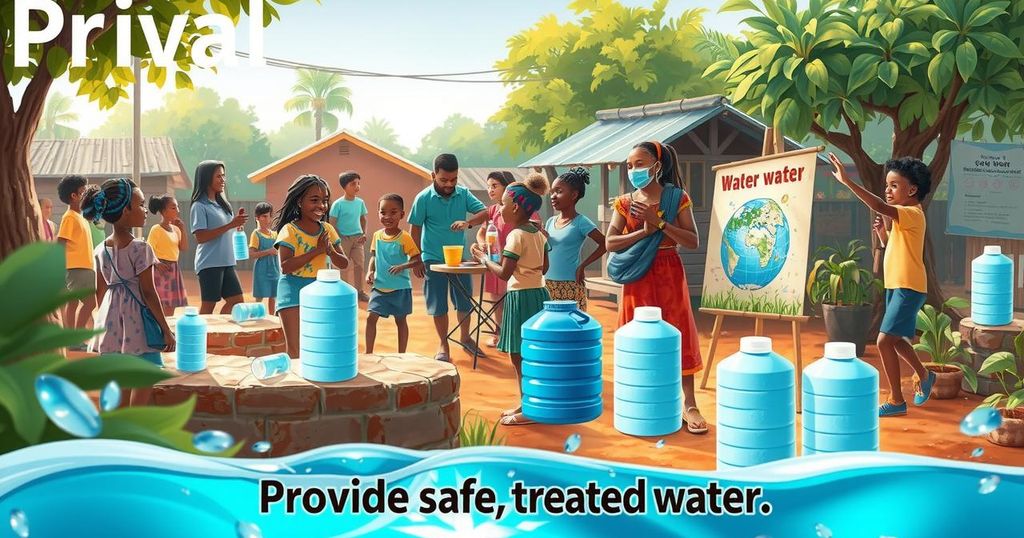World Water Day 2025: Fighting Cholera in Angola Through Water and Hygiene Initiatives
World Water Day 2025 emphasizes the Angola Red Cross’s efforts in addressing cholera in Angola. Following an outbreak confirmed on January 7, 2025, volunteers have mobilized to provide safe drinking water and distribute health information. Training 478 volunteers across provinces, they focus on hygiene promotion, vaccination campaigns, and community engagement. The IFRC supports long-term investments in water and sanitation to prevent future outbreaks, highlighting the need for a coordinated approach to tackle cholera’s root causes.
World Water Day 2025 highlights the vital efforts of the Angola Red Cross and the International Federation of Red Cross and Red Crescent Societies (IFRC) in combating cholera in Angola. Following the confirmation of a cholera outbreak on January 7, 2025, the Angola Red Cross mobilized volunteers to provide safe drinking water and prevent exposure to this deadly waterborne disease. These volunteers have been actively distributing water in communities and preparing oral hydration solutions.
The cholera outbreak initially emerged in Cacuaco, Luanda Province, which is home to approximately 1.2 million residents. The disease has since proliferated across 14 provinces and 57 municipalities, with Luanda recording the highest number of cases. To combat this, the Angola Red Cross has trained 478 volunteers across several provinces to support the Ministry of Health in disseminating vital health information about cholera, including its causes, symptoms, and prevention measures.
The Red Cross volunteers engage the community through door-to-door visits and public outreach in schools and markets, focusing on hygiene promotion and sanitation. They have provided household water-treatment tablets to over 20,000 families and established handwashing facilities in cholera hotspots. This initiative is crucial in lowering the risk of transmission, especially amidst poor sanitation and a dense population.
The volunteers also assist in cholera vaccination campaigns by building community trust. They work closely with local leaders to convey information about cholera vaccines and proper hygiene. As emphasized by Catarina Laurinda, combining vaccination efforts with water treatment and sanitation practices is essential for combating cholera effectively.
Alexandra Machado, the IFRC’s public health coordinator, notes that ensuring future outbreaks do not occur lies in preparedness. The IFRC advocates for sustained investment in water, sanitation, and hygiene infrastructures—not solely reactive measures during outbreaks—to genuinely tackle cholera’s root causes. Naemi Heita from IFRC stresses the significance of collective investment from governments and NGOs to build resilience against disasters and public health issues.
For more detailed information on the IFRC’s water, sanitation, and hygiene plans, visitors can explore the IFRC’s dedicated webpage and WASH resource materials.
In summary, the Angola Red Cross and IFRC are committed to alleviating the cholera outbreak crisis through proactive measures such as the distribution of treated water, community engagement, and health education. The emphasis on vaccination, sanitation, and long-term investments in infrastructure underlines a comprehensive approach to addressing cholera and preventing future outbreaks. By enhancing community readiness and infrastructure, the organizations aim to eradicate cholera as a public health threat in Angola.
Original Source: reliefweb.int




Post Comment